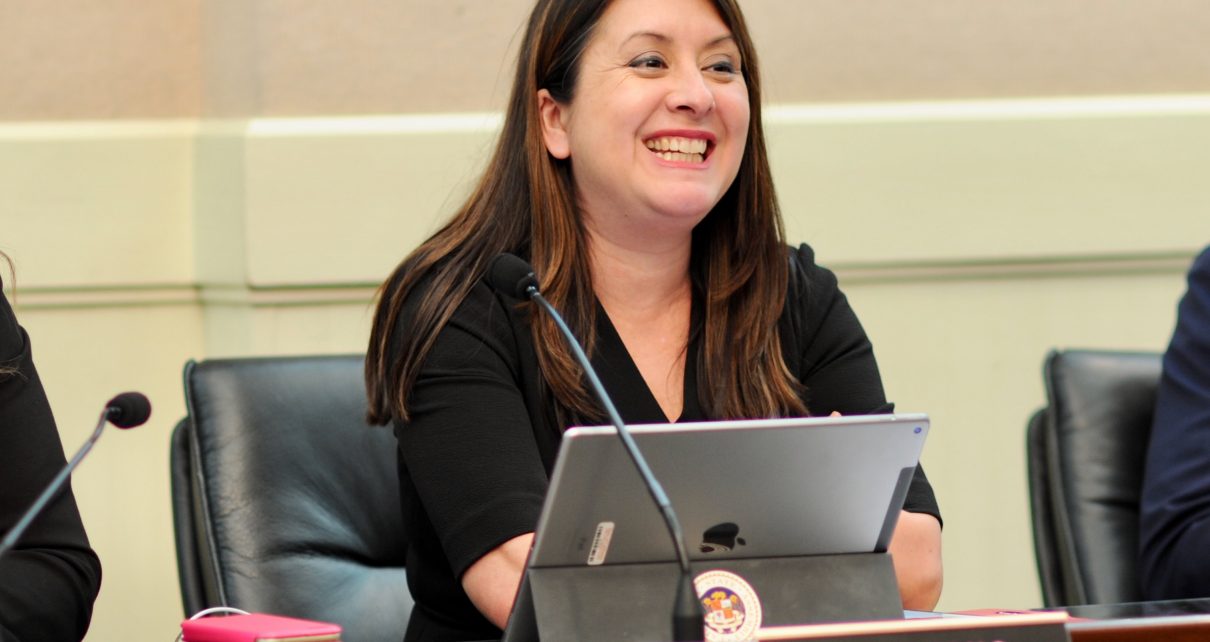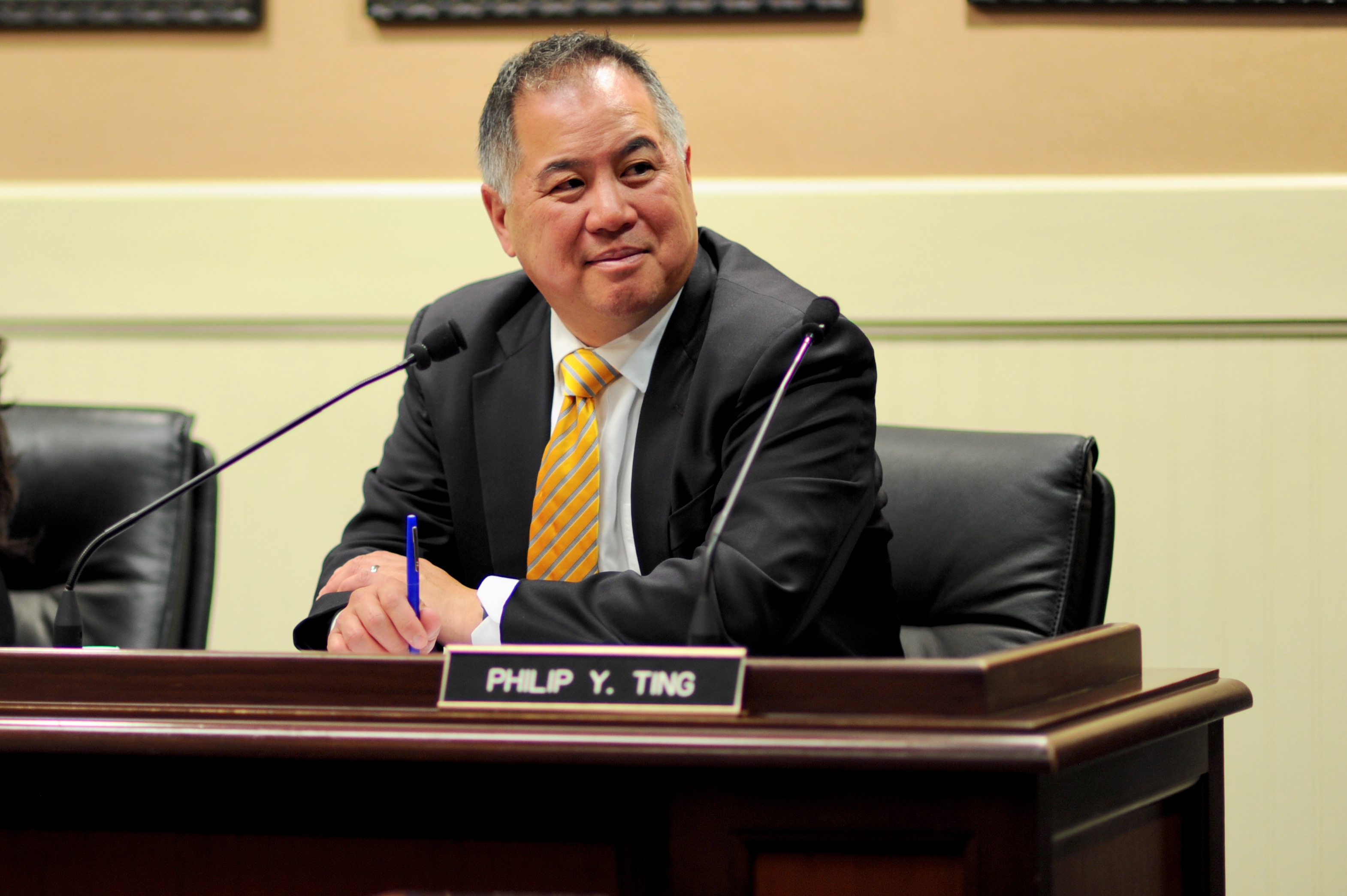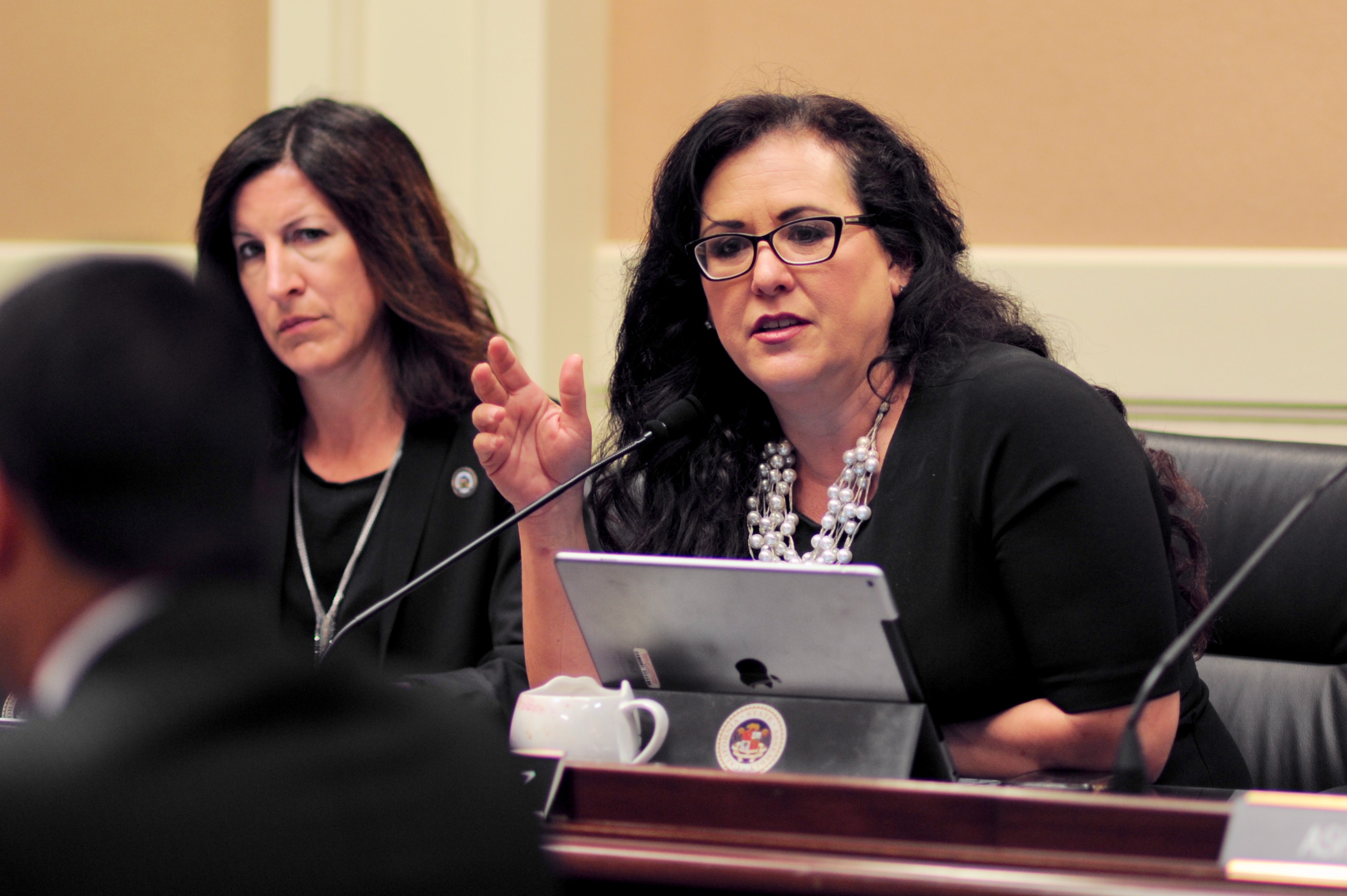
Assemblywoman Luz Rivas. (Photo: Kevin Sanders for California Globe)
Heatwave Advance Warning, Ranking System Bill Introduced in Assembly
AB 2238 would create the first heatwave advance warning, ranking system in the US
By Evan Symon, February 17, 2022 2:05 pm
A bill that would create a statewide advance warning and ranking system of extreme heatwaves was introduced to the Assembly on Wednesday.
Assembly Bill 2238, jointly authored by Assemblywoman Luz Rivas (D-North Hollywood) and Assemblyman Eduardo Garcia (D-Coachella), would create the ranking and advance warning system in conjunction wit the Department of Insurance and the Integrated Climate Adaptation and Resiliency Program (ICARP), a wing of the Governor’s Office of Planning and Research (OPR) that focuses on climate change impacts. Such a system would be developed by January 2024 and would also require ICARP to develop a public program around the ranking system and work with local and tribal governments in implementing the system locally, develop guidance in preparing and planning for extreme heat, and recommend adaptation measures.
According to AB 2238, heat wave ranking itself would be based on the projected health impact of the wave, meteorological and weather data, and how long the wave is expected to last. Once fully up, heat wave rankings are planned to be as ubiquitous as current air quality alerts and forest/wildfire danger levels.
Finally, the Department of Insurance will need to send in a study by the end of 2023 of the insured and uninsured costs related to past extreme heat events to the appropriate legislative policy and budget committees, the agency, and ICARP in order to find gaps in insurance coverage in areas frequented by extreme heat waves.
The warning system bill idea was first brought to the public’s attention at the United Nations Climate Change Conference in Glasgow, Scotland last year. Assemblywoman Rivas and Assemblyman Garcia wrote the bill due to the increase of both the frequency of extreme heat waves in California in recent years and associated health effects of the heat waves. In particular, the authors want the heat wave warning system to let cities and communities know about such a wave well in advance so that vulnerable areas can be worked on to mitigate the number of people negatively affected by a heat wave.
During it’s introduction on Wednesday, both Assemblymembers pointed out how emergency room visits due to heat wave related injuries such as fainting and dehydration went up by ten times the normal number during waves in Los Angeles in 2020. They also noted how residents were also unprepared for more recent heat waves, such as the heat wave that hit LA this past Sunday during Super Bowl LVI.
Early support for AB 2238
“California’s climate has become increasingly erratic – we must take bold action to protect our residents from climate crises like extreme heat, which has intensified in both severity and occurrence,” said Assemblywoman Rivas in a press release on Wednesday. “For years, I have elevated extreme heat policy issues because we cannot keep leaving our most vulnerable residents exposed to dangerous heat waves without proper warning or preparation. I’m excited to work with Commissioner Ricardo Lara and my colleague Eduardo Garcia, both of whom are environmental leaders and champions for Californians disproportionately suffering from the effects of rising temperatures.”

“Extreme heat is a matter of life and death in my district and throughout California. We can no longer ignore this escalating climate consequence as it jeopardizes health and safety conditions for residents,” added Assemblyman Garcia on Wednesday. “Assemblymember Luz Rivas, Insurance Commissioner Lara, and I are taking legislative action and enlisting support to better prepare and protect our most vulnerable communities with this first-in-the-nation, lifesaving heat ranking system.”
Insurance Commissioner Ricardo Lara, who also played an instrumental part in setting up the bill, noted in the same press release that “Extreme heat waves are the deadliest climate threat that California is facing today. With more heat waves forecast in the years ahead, it is essential to public health and safety that we help Californians prepare, especially our most vulnerable. Giving advance warning and ranking these heat waves help us confront the growing threat of extreme heat with actions that people and communities can take to stay safe and healthy.”
AB 2238 has yet to receive any major opposition, with lawmakers in both parties hinting that the bill would be easily passed this year, likely due to many elderly and heat vulnerable citizens who would benefit from such a system in place.
“Forest fire color warnings have worked for years to help prevent forest fires, with air quality indexes doing the same for people who have health problems or want to avoid choking air,” explained Sarah Springer, a weekly weather compiler for a chain of mental healthcare and retirement home centers, to the Globe on Thursday. “The warning would help a lot of people plan things out. Maybe there is an upcoming baseball game they may want to exchange tickets for due to a projected heat wave coming or that they know when to break out the fans or swamp coolers ahead of time to avoid anyone getting hurt. It gives time to test AC units in a house or apartment. It will help save lives. There’s no real downside here.”
AB 2238 is expected to be discussed in Assembly committees in the coming weeks.
- Bill to Require Law Enforcement Disclosure if AI Was Used To Help Write Reports - August 7, 2025
- Gov. Newsom Files FOIA Request To ‘Expose True Cost’ Of L.A. Federal Troop Deployment for Anti-ICE Riots - August 6, 2025
- California Redistricting: How Newsom’s Plan Will Demolish Hard Fought GOP Gains - August 6, 2025





More nonsense to try to scaremonger “climate change” I guess now that their COVID fearmongering is winding down. This one is particularly stupid.
* Promote “global warming” or whatever;
* Add more staff to the bloated state government with fat salaries and fatter retirements;
* Put more power in the hands of un-elected bureaucrats and take it from citizens;
* Score “woke” points for “doing something” about a purely natural phenomenon;
* Get your name in the media with the all-important (D) after it.